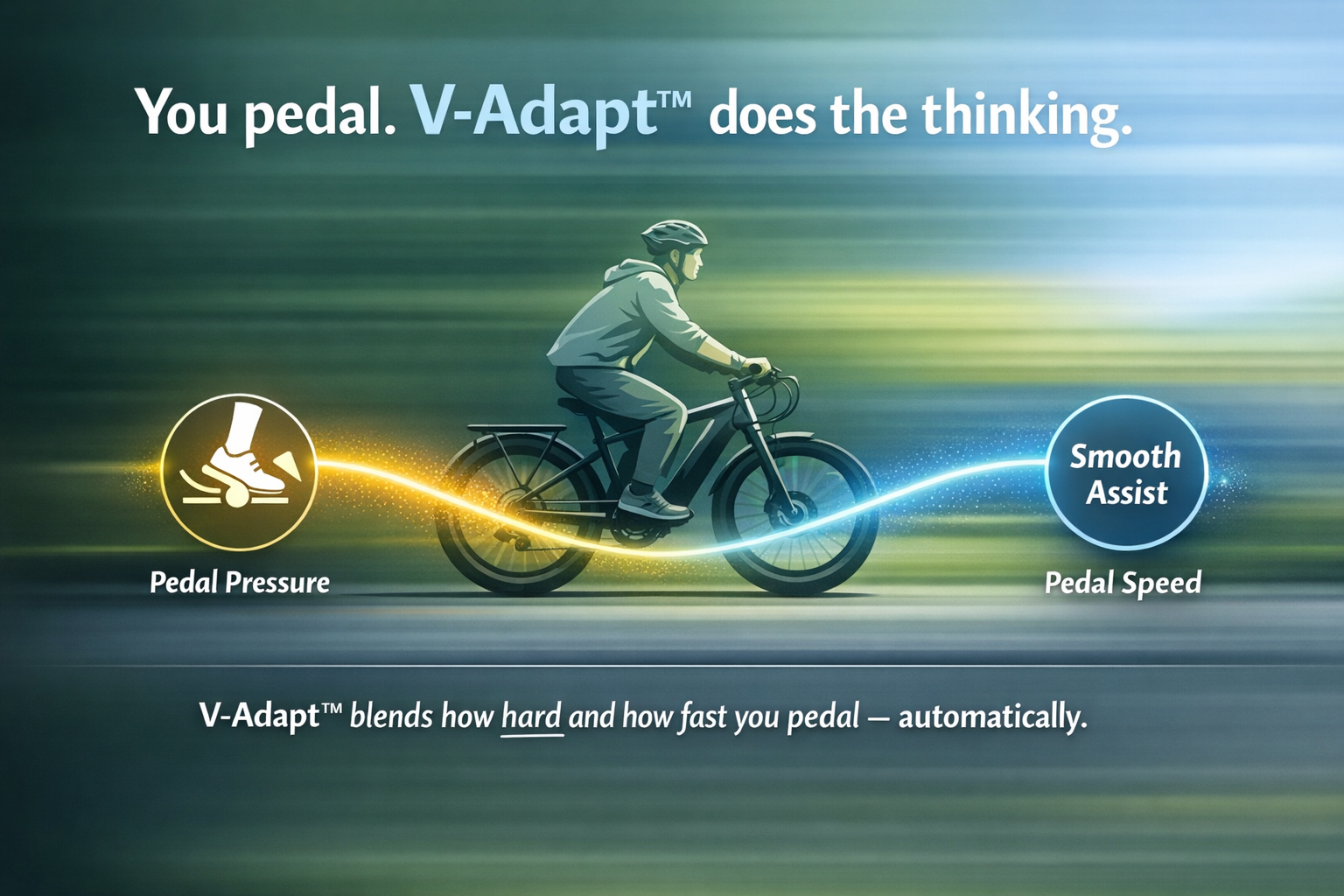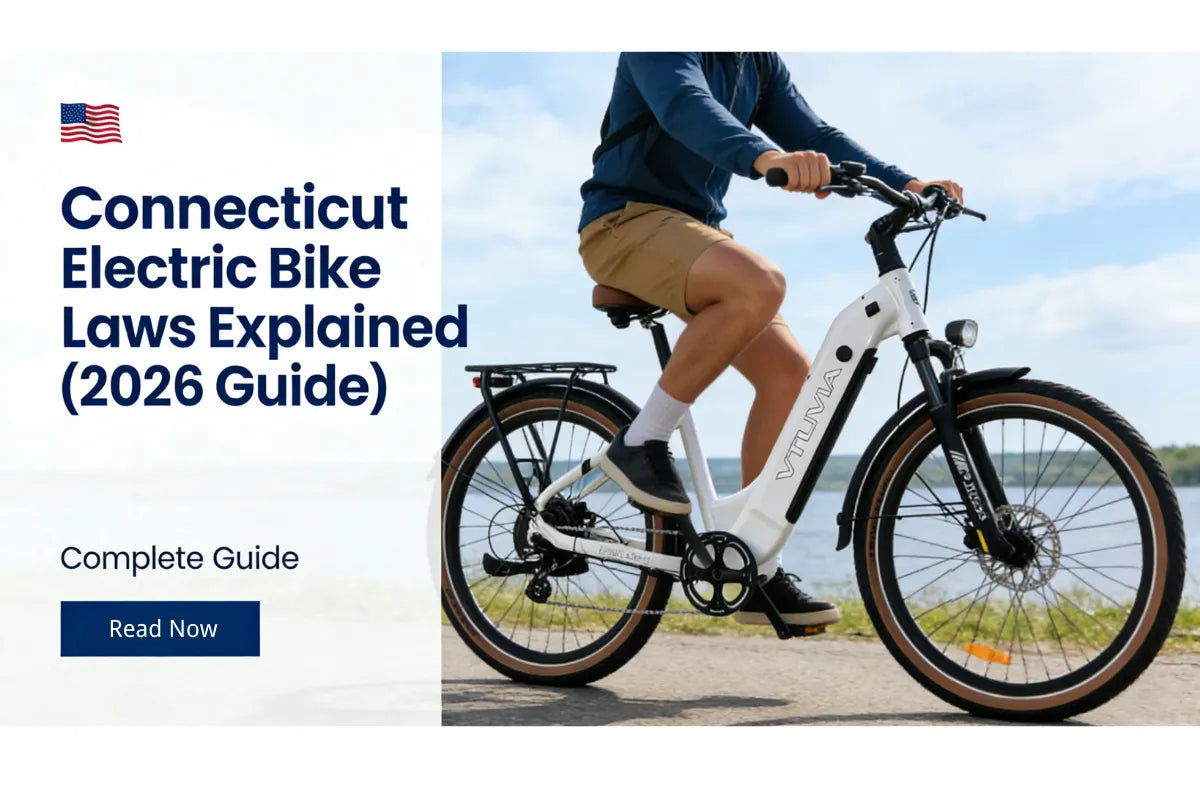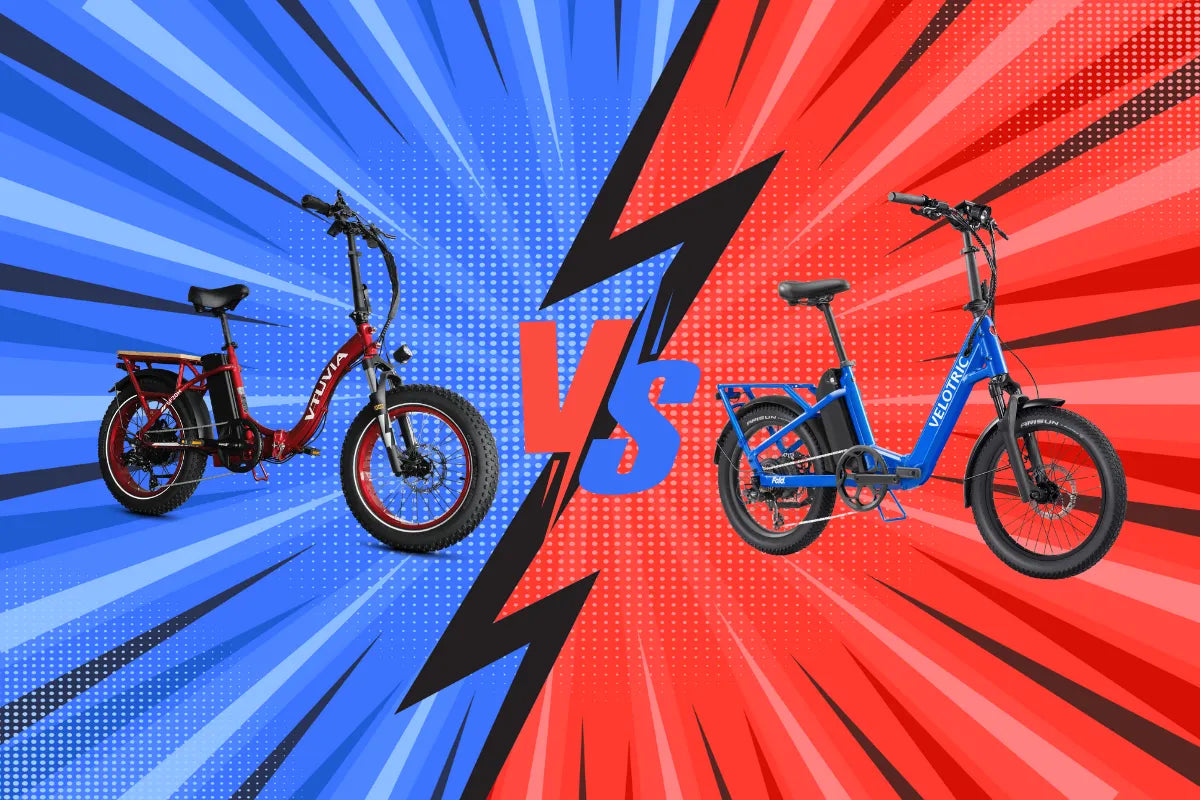When it comes to e-bikes, one of the key components that significantly affects the riding experience is the front fork. The fork not only supports the front wheel but also plays a major role in handling and comfort. There are several types of forks available, each designed for specific riding styles and conditions. In this blog, we’ll dive into the differences between Suspension Forks and Rigid Forks, highlighting their pros and cons.
What is a Suspension Fork?
A suspension fork is designed with shock-absorbing mechanisms that help smooth out the ride by reducing the impact of bumps, potholes, and rough terrain. Suspension forks are further divided into two main types: mechanical suspension forks and hydraulic suspension forks.
-
Mechanical Suspension Fork: Utilizes a spring-based system (often a coil spring) to absorb shocks. It’s a simpler and more affordable option, offering basic comfort.
-
Hydraulic Suspension Fork: Uses fluid damping to provide smoother and more controlled shock absorption. It’s ideal for riders seeking better performance, especially in mixed or rough terrains.
Rigid Fork: A Simpler Alternative
On the other hand, a rigid fork is a solid, non-suspension fork that doesn't provide any shock absorption. It’s commonly found on e-bikes designed for smooth city roads or paved surfaces where suspension may not be necessary. Due to its simple design, rigid forks are lighter and require less maintenance.
Key Differences Between Suspension Fork and Rigid Fork
-
Shock Absorption
-
Suspension Fork: The most significant advantage is its ability to absorb shocks, making rides on uneven surfaces smoother. Whether you're navigating rough trails or uneven city roads, suspension forks reduce the jarring impact.
-
Rigid Fork: Offers no suspension or shock absorption, so you feel every bump and pothole on the road. It's best suited for smooth pavement or riders who don’t require extra cushioning.
-
-
Riding Comfort
-
Suspension Fork: Because of the shock-absorbing nature, it enhances rider comfort, reducing fatigue from long rides or rough terrain. This makes it a popular choice for commuter e-bikes and off-road e-bikes.
-
Rigid Fork: Less comfortable on rough surfaces. However, for urban riders who stick to flat, even streets, the rigid fork still provides a reliable, low-maintenance option.
-
-
Weight
-
Suspension Fork: Typically heavier than rigid forks due to the internal mechanics, though air suspension models can be lighter. The additional weight might affect the overall speed and maneuverability, especially for city commuters.
-
Rigid Fork: Lightweight and simple, rigid forks are a great choice for those looking for speed and agility on smooth roads, making them ideal for urban e-bikes.
-
-
Control and Stability
-
Suspension Fork: Offers better control on rough terrains. It keeps the front wheel grounded during bumpy rides, improving traction and stability, especially in off-road conditions.
-
Rigid Fork: Provides a more direct connection to the road, which some riders prefer for quicker and more responsive handling on smooth surfaces.
-
-
Maintenance
-
Suspension Fork: Requires more maintenance due to the internal shock-absorbing components, especially hydraulic systems. Over time, seals and dampers may need servicing.
-
Rigid Fork: Simple and durable, requiring virtually no maintenance, which is ideal for city commuters who want a low-hassle bike.
-
Which Fork is Right for You?
-
City Commuters: If your primary rides are on smooth, paved roads, a rigid fork may suit your needs. It's lightweight, requires minimal maintenance, and allows for faster, more efficient rides.
-
Mixed Terrain Riders: If you frequently encounter bumps, cracks, or uneven paths, a mechanical suspension fork will provide the comfort and stability you need at an affordable price.
-
Off-Road Adventurers: For those who enjoy off-road trails or rough terrain, a hydraulic suspension fork offers the best performance. The added shock absorption and control will make a huge difference on challenging terrain.
Conclusion
Both suspension and rigid forks have their strengths, and choosing the right one depends on your riding style and terrain. Suspension forks offer a smoother, more comfortable ride on rough roads and trails, while rigid forks shine in simplicity and lightweight design, perfect for city commuters. Knowing the differences can help you make a more informed choice when selecting your next e-bike.





Share:
E-Bike Battery Range: What You Need to Know
The Best 10-Speed E-Bike of 2024: The Upgraded CMB Pro